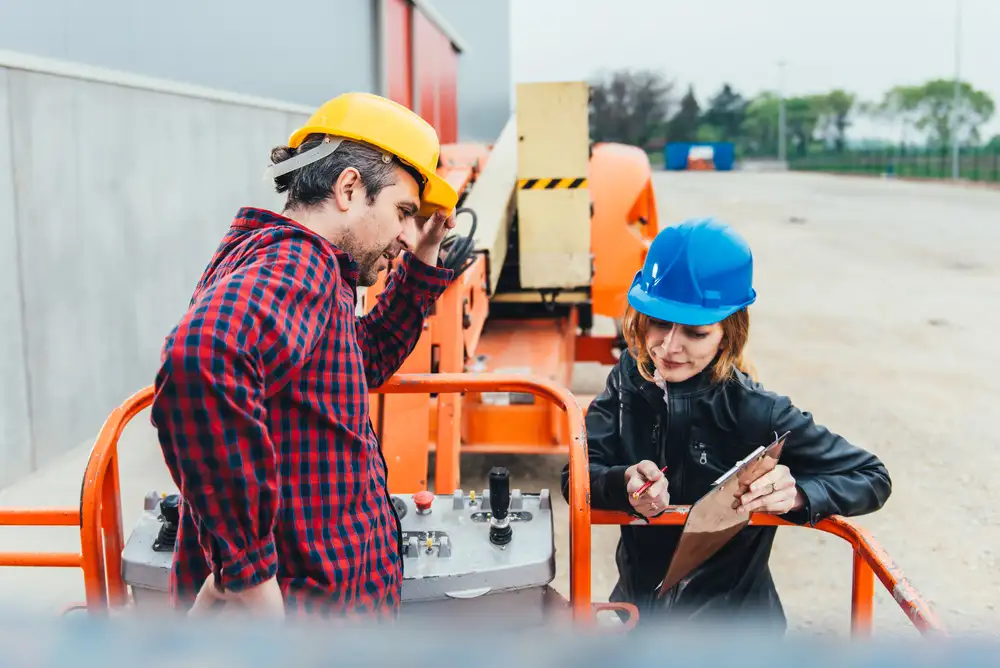Ensuring Crane Safety: A Critical Imperative for every operator.
Our operators are NCCCO certified. Click here to learn more.
In the dynamic and demanding world of construction, the towering presence of cranes is synonymous with progress and development. However, the operation of cranes introduces inherent risks that, if not managed effectively, can lead to catastrophic consequences. The importance of crane safety cannot be overstated, as it not only protects the lives of workers but also safeguards property, enhances project efficiency, and upholds the reputation of the construction industry. This article delves into the critical aspects of crane safety, examining the reasons why it is an indispensable element in construction site management.

Prevention of Accidents and Injuries:
The foremost and most immediate impact of prioritizing crane safety is the prevention of accidents and injuries. Crane-related incidents can result in severe consequences, including fatalities, debilitating injuries, and long-lasting psychological trauma for the workers involved. By implementing robust safety measures and adhering to established protocols, construction companies can significantly reduce the risk of accidents, fostering a safer working environment.
A comprehensive safety program should encompass proper training for crane operators, stringent equipment inspection routines, and clear communication protocols between team members. Regular safety briefings and ongoing education ensure that all workers understand the potential hazards associated with crane operations, empowering them to make informed decisions that contribute to a safer workplace.
Protection of Property and Equipment:
Beyond human safety, crane accidents can also lead to extensive property damage and equipment loss. Collapses, tip-overs, or dropping loads can result in costly repairs, project delays, and financial setbacks for construction companies. Adhering to stringent safety measures, such as regular equipment inspections and adherence to load capacity limits, is essential in safeguarding both the crane and the surrounding infrastructure.
Investing in advanced crane safety technology, such as load moment indicators and anti-collision systems, adds an additional layer of protection. These technologies provide real-time data and warnings to operators, helping them make informed decisions and avoid potential hazards. The financial and operational implications of avoiding property damage make crane safety not just a moral imperative but also a smart business strategy.
Regulatory Compliance and Legal Consequences:
Construction projects are subject to a myriad of regulations and safety standards set by governing bodies such as the Occupational Safety and Health Administration (OSHA). Adhering to these regulations is not only a legal requirement but also a fundamental aspect of ethical and responsible construction practices.
Failure to comply with safety regulations can lead to severe legal consequences, including fines, project shutdowns, and even criminal charges in cases of gross negligence. Crane safety, therefore, serves as a shield against legal liabilities, protecting the reputation and financial stability of construction companies. Proactive adherence to safety standards is not just about meeting legal requirements but also about fostering a culture of responsibility and accountability within the industry.
Enhanced Productivity and Project Efficiency:
Contrary to a common misconception, prioritizing safety does not hinder productivity; rather, it enhances it. A safe working environment promotes efficient operations by minimizing disruptions caused by accidents, injuries, or equipment failures. Well-trained crane operators who prioritize safety protocols are more likely to perform their tasks with precision and confidence, leading to smoother project workflows.
Additionally, a commitment to crane safety includes regular maintenance and timely repairs, ensuring that equipment is in optimal condition. This proactive approach reduces the likelihood of unexpected breakdowns, preventing unplanned downtime that can have cascading effects on project timelines. In essence, crane safety is not just a moral obligation but also a strategic investment in the overall efficiency and success of construction projects.
Reputation and Stakeholder Confidence:
The construction industry’s reputation is built on trust, reliability, and the ability to deliver projects safely and on time. Crane accidents not only harm the individuals involved and the project at hand but also tarnish the reputation of the entire industry. News of accidents spreads quickly, and the public perception of a construction company can be irreversibly damaged.
By prioritizing crane safety, construction companies demonstrate a commitment to responsible practices and the well-being of their workforce. This commitment fosters trust among clients, investors, and the community at large. In an industry where reputation is a valuable asset, a strong safety record becomes a competitive advantage, attracting stakeholders who prioritize ethical and safety-conscious business partners.
Crane safety is not an optional consideration in the construction industry; it is a fundamental and non-negotiable aspect of responsible project management. The importance of crane safety extends beyond the immediate prevention of accidents and injuries to encompass the protection of property, legal compliance, enhanced productivity, and the preservation of a positive industry reputation.
Construction companies that invest in comprehensive safety programs, provide ongoing training for operators, and leverage advanced safety technologies not only fulfill their moral and legal obligations but also position themselves as leaders in the industry. As the construction landscape continues to evolve, prioritizing crane safety remains a critical imperative for ensuring the well-being of workers, protecting valuable assets, and building a sustainable and reputable future for the construction industry.